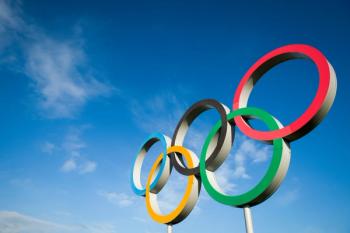
The Positive Social Psychiatry Aspects of the Super Bowl
Key Takeaways
- The Super Bowl exemplifies conflict resolution, community connection, and peak performance, reflecting broader societal values and challenges.
- Forgiveness, compassion, and love are emphasized, with attention to physical injuries and social causes like autism awareness.
Did you watch the Super Bowl?
PSYCHIATRIC VIEWS ON THE DAILY NEWS
Yesterday was the Super Bowl game for the best American football team. It can be viewed as super not only for the battle for the best team, but because of its psychosocial and cultural manifestations. Here are a dozen of them.
Conflict Resolution. After any typical physically brutal game, both teams meet to shake hands and often praise one another, rather than to continue and escalate the conflicts as seems now common in our 2 warring party governments. Usually, the fans in the stands follow suit with sportsmanship.
Community Connections. In our age of increasing loneliness, with all the negative repercussions on health and mental health, supporting local teams brings disparate individuals together for a common goal that is not overly destructive.
Peak Performance. Improving physical ability and mental focus are a major part of preparation to do one’s best. Psychologists and psychiatrists are now welcome for our contribution to athletic well-being. Personally, I had the opportunity to be part of the formal establishment of sport psychiatry in academic psychiatry and then an ensuing international association.1
Forgiveness. Bad plays are usually forgiven as inevitable and opportunities to address mistakes are common.
Compassion. Compassion is part of being able to move on from mistakes. Even more striking is how both teams will rally around in concern around a major injury of any player.
Choose Love. Especially with Valentine’s Day coming up and our nation’s divisiveness increasing, stenciling in the end zone message of “Choose Love” was so relevant.
Reducing Physical Injures. Particularly in American football, head injuries, which adversely influence ongoing brain function, is getting more attention. I personally have suffered from remnants of the multiple concussions I received as a youth in football and hockey.
Helping Animals and Autism. There is an annual Puppy Bowl a few hours before the football game. The goal is to raise money for pet adoption. This game is more one of organized chaos. One of the teams in the Super Bowl, the Philadelphia Eagles, are already champions for raising money for autism research and social opportunities. Given that spectrum’s presence in our extended family, I was a fan of the Eagles in this game. They won! However, a little was lost in the looting, vandalism, and small fires in the celebration downtown afterwards.
President Trump Attended. He was the first sitting President to attend a Super Bowl. He predicted a Kansas City Chiefs win. They lost.
A Game of Life. I live in Green Bay Packer land. They started on their modern success, including Super Bowl wins, under Coach Lombardi. In the late 1960s, he gave versions of a speech where he emphasized that football is also a game of life, in a way like war, teaching hard work, sacrifice, perseverance, and respect for the right kind of leadership. To him, that justified his coaching mantra: “Winning isn’t everything, it’s the only thing.”2 He was antiracist, helping to make the lily-white town of Green Bay a comfortable enough place for Black players to live.
And All That Jazz. One of the new innovators in jazz, out of New Orleans where the game was held, is Jon Batiste, who sang and played our national anthem. No “take the knee” protests against racism as in some years past.
Psychiatric Treatment. We perhaps can adapt Lombardi’s mantra to psychiatry. Mental illness is important to defeat because of the mental suffering and perceived change of the essence of who we are. Unfortunately, there are associated mental disorders that are directly connected to sports in the vulnerability to gambling disorders as legalized gambling has escalated over the country. Our team is us, the patient and loved ones, and a win is whatever improvement is possible. The physical bruises and injuries in football are our treatment adverse effects and societal stigma. Slowly, but surely, we are getting better at winning.
Dr Moffic is an award-winning psychiatrist who specialized in the cultural and ethical aspects of psychiatry and is now in retirement and retirement as a private pro bono community psychiatrist. A prolific writer and speaker, he has done a weekday column titled “Psychiatric Views on the Daily News” and a weekly video, “Psychiatry & Society,” since the COVID-19 pandemic emerged. He was chosen to receive the 2024 Abraham Halpern Humanitarian Award from the American Association for Social Psychiatry. Previously, he received the Administrative Award in 2016 from the American Psychiatric Association, the one-time designation of being a Hero of Public Psychiatry from the Speaker of the Assembly of the APA in 2002, and the Exemplary Psychiatrist Award from the National Alliance for the Mentally Ill in 1991. He presented the third Rabbi Jeffrey B. Stiffman lecture at Congregation Shaare Emeth in St. Louis on Sunday, May 19, 2024. He is an advocate and activist for mental health issues related to climate instability, physician burnout, and xenophobia. He is now editing the final book in a 4-volume series on religions and psychiatry for Springer: Islamophobia, anti-Semitism, Christianity, and now The Eastern Religions, and Spirituality. He serves on the Editorial Board of Psychiatric Times.
References
1. Glick I, Kamis D, Stull T, eds. The ISSP Manual of Sports Psychiatry. Routledge; 2018.
2. Lombardi V Jr. What It Takes to Be #1: Vince Lombardi on Leadership. McGraw-Hill; 2003.
Newsletter
Receive trusted psychiatric news, expert analysis, and clinical insights — subscribe today to support your practice and your patients.







